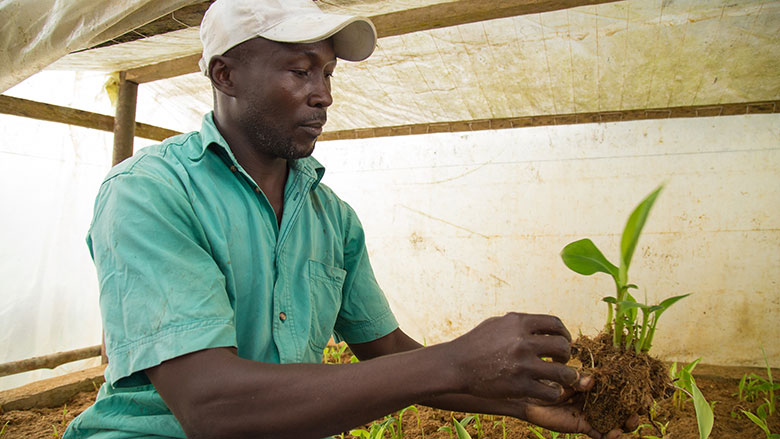Results
At end February 2016, under the Côte d’Ivoire Emergency Infrastructure Renewal Project, more than 3.6 million people in the targeted urban areas were provided with access to an all-weather road, compared to about 3.1 million before the project started. Thanks to the electricity household connection component of the project, 16,600 people in two targeted urban areas (Yamoussoukro and Korhogo) have access to electricity. An additional 100, 000 people in the targeted urban areas are now protected against periodic flooding and 1.4 million people have been provided with access to rehabilitated health centers. 22,000 children have access to rehabilitated primary schools, and more than 3.5 million people have access to improved water sources.
The Emergency Youth Employment and Skills Development Project (PEJEDEC), is currently being implemented. PEJEDEC was launched in 2011 with an initial $50 million IDA grant.. At the completion of the initial phase in June 2015, PEJEDEC had created new employment opportunities for about 27,000 vulnerable youth, 35% of whom are women. It also supported professional skills training aimed at improving the employability of youth and provided them a chance to gain experience through on-the-job-training programs. On March 26, 2015, the Board approved an additional funding of $50 million to scale up successful activities.
Bank Group Contribution
As of May 31, 2016, Côte d’Ivoire’s portfolio is composed of 10 national projects ($686 million), 5 regional projects ($165 million) and 5 trust funds ($55 million) fora total of 20 projects with a total commitment of $906 million.
The two IDA funded projects received $200 million. This includes a $50 million additional financing for the Youth Employment Project approved by the Board on March 26, 2015. An additional financing for the Infrastructure Renewal Project is planned to be delivered in FY17.
Partners
Donors are currently organized around 14 sectorial working groups, which include mechanisms and technical teams to ensure their functioning. These working groups collaborate well, especially during project preparation, and are complemented by cooperation around specific instruments. For example, the World Bank Group, the International Monetary Fund (IMF), and the European Union (EU) have coordinated closely in the design of policy-based operations since 2011. The World Bank Group has also coordinated closely with the EU, the French Development Agency (AFD) and other key donors such as the Government of France in the design of investment programs in the agriculture and youth employment programs.
